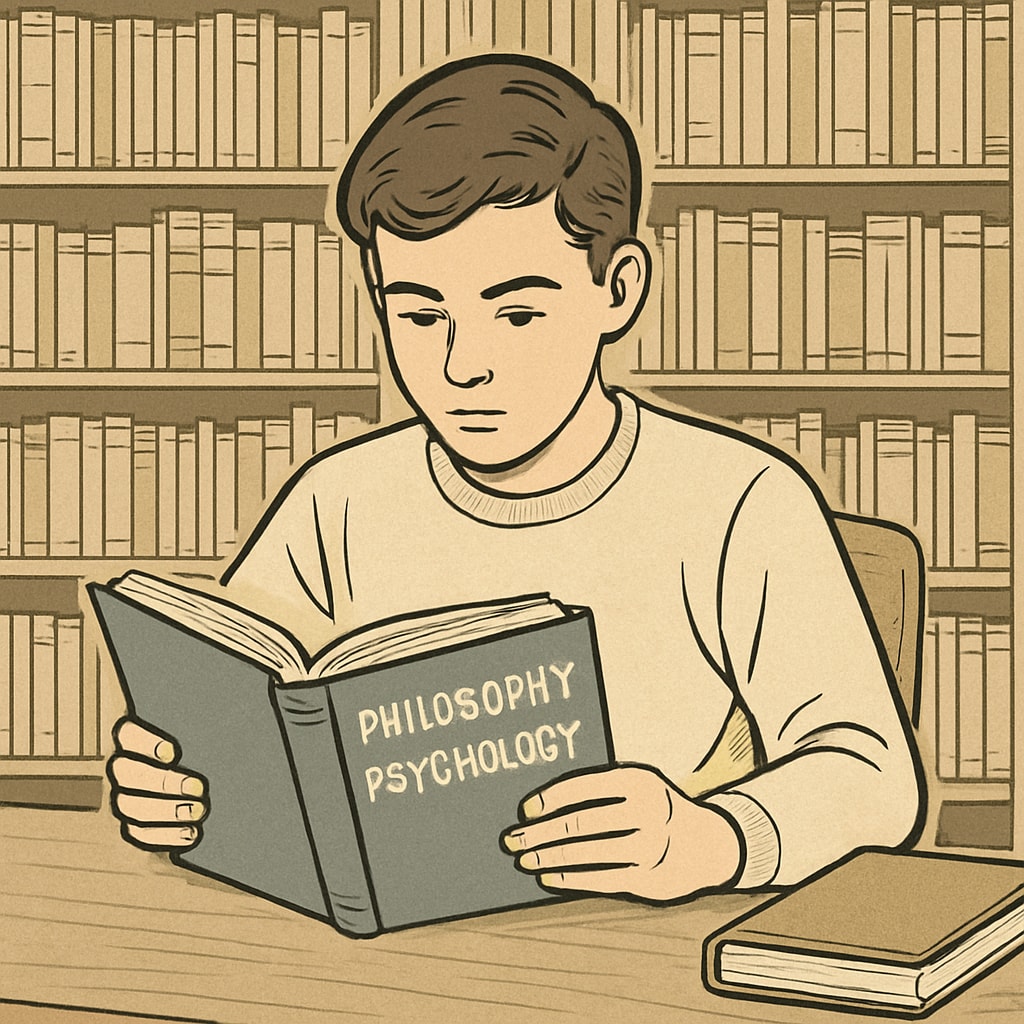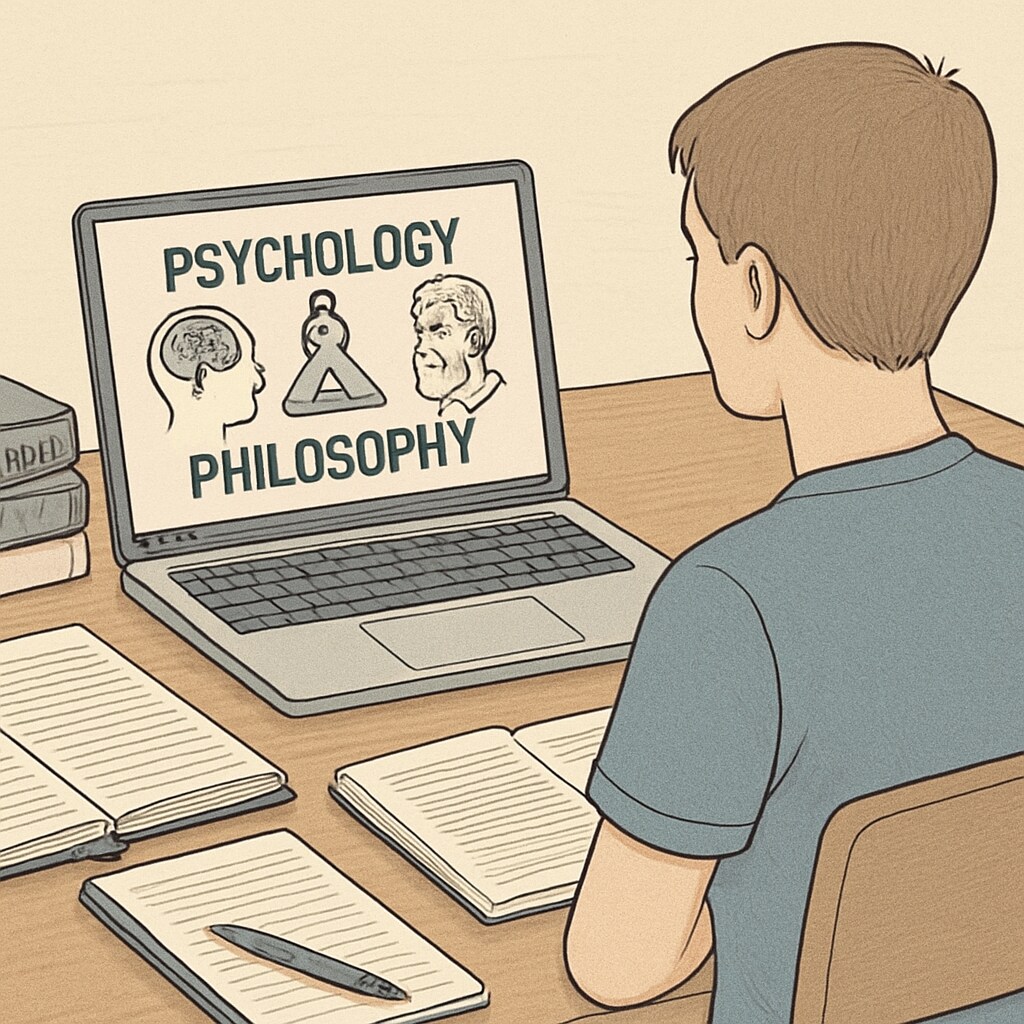Psychology, philosophy, and self-learning resources are powerful tools for K12 students to explore the depths of human thought and behavior. These subjects not only enhance critical thinking but also encourage self-reflection and empathy. While they are often not part of standard school curricula at this level, students can still embark on a journey of discovery through well-chosen resources and strategies. In this article, we will explore practical ways for young learners to cultivate their interest in psychology and philosophy, offering guidance on where to start and how to deepen their understanding.
Why Learn Psychology and Philosophy During the K12 Stage?
Psychology and philosophy are disciplines that foster critical and analytical thinking. These subjects help students understand the complexities of human behavior, thought processes, and ethical dilemmas. For younger learners, exploring these fields can lead to:
- Better problem-solving and decision-making skills.
- Enhanced emotional intelligence and self-awareness.
- A stronger ability to reason and evaluate arguments.
For example, studying foundational psychological concepts like cognitive biases can help students recognize how their minds work. Similarly, engaging with philosophical questions such as “What is the meaning of justice?” can sharpen their reasoning abilities. Introducing these topics during the K12 years lays the groundwork for lifelong learning and curiosity.

How to Begin Self-Learning Psychology and Philosophy
When it comes to psychology and philosophy, there is a wealth of resources available for learners of all ages. However, starting with age-appropriate materials is key to maintaining interest and avoiding overwhelm. Here are some steps to begin:
1. Choose Beginner-Friendly Books
Books are an excellent starting point for self-learners. For psychology, students can begin with accessible texts like “The Psychology Book” by DK or “Emotional Intelligence 2.0” by Travis Bradberry. In philosophy, titles like “The Philosophy Book” by DK or “Sophie’s World” by Jostein Gaarder provide engaging introductions to key concepts and thinkers.
2. Explore Online Resources
There are numerous free and credible online platforms where students can learn more about these subjects. For instance, Coursera offers beginner-friendly courses on both psychology and philosophy. Similarly, Khan Academy provides resources and lessons tailored for younger audiences.
3. Engage with Podcasts and Videos
Incorporating multimedia into the learning process can make it more dynamic and entertaining. Podcasts like “The Psychology Podcast” by Dr. Scott Barry Kaufman or YouTube channels such as CrashCourse Psychology and Philosophy Tube offer engaging content tailored to beginners.
4. Practice Critical Thinking
Encourage students to engage with real-life scenarios where they can apply these concepts. They can analyze ethical dilemmas, conduct simple psychology experiments, or write reflective essays to deepen their understanding.

Making Self-Learning a Lifelong Habit
To ensure that learning psychology and philosophy becomes a sustainable habit, students should be encouraged to make it part of their daily routines. Here are a few tips:
- Create a Study Schedule: Dedicate specific times each week to reading or engaging with educational content.
- Join Online Communities: Platforms like Reddit or Quora have dedicated communities where learners can discuss these topics.
- Seek Mentorship: Connecting with a teacher or expert in these fields can provide valuable guidance.
In addition, schools and parents can play a supportive role by providing access to resources and encouraging open discussions about the topics that interest students. As a result, learners will develop a passion for questioning and understanding the world around them.
Psychology and philosophy offer profound insights into the human mind and the nature of existence. By starting this journey of self-learning during the K12 stage, students can build a strong intellectual foundation and cultivate a lifelong curiosity for the humanities.
Readability guidance: Use short and engaging paragraphs, include lists to summarize key points, and maintain an approachable tone to make complex subjects accessible. Distribute keywords naturally and avoid overly technical language.


